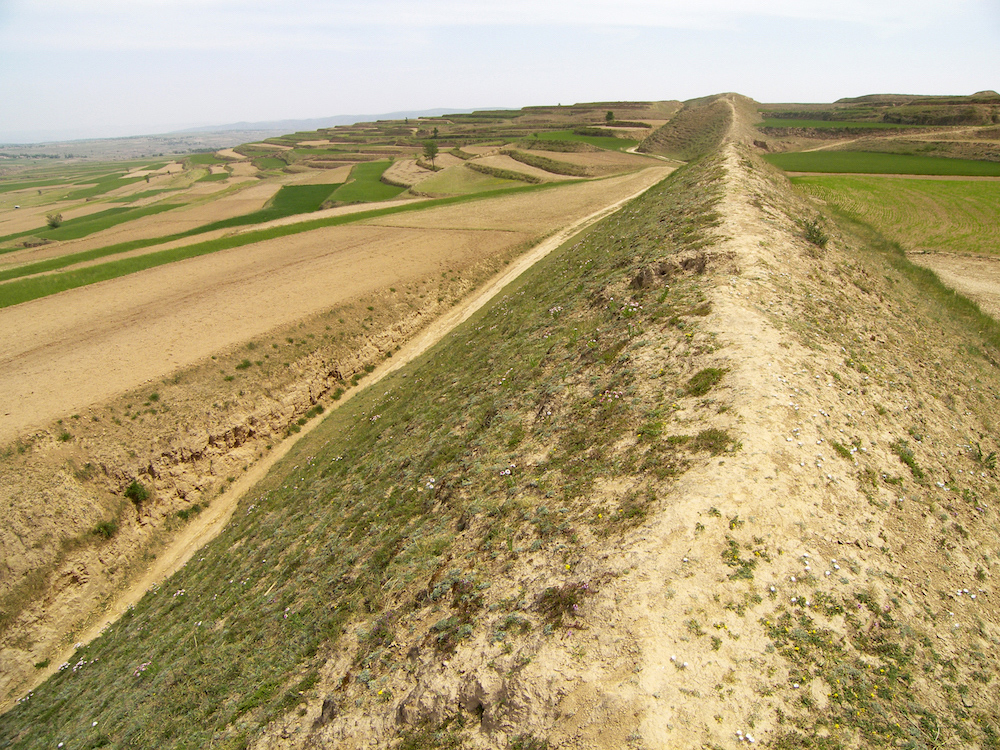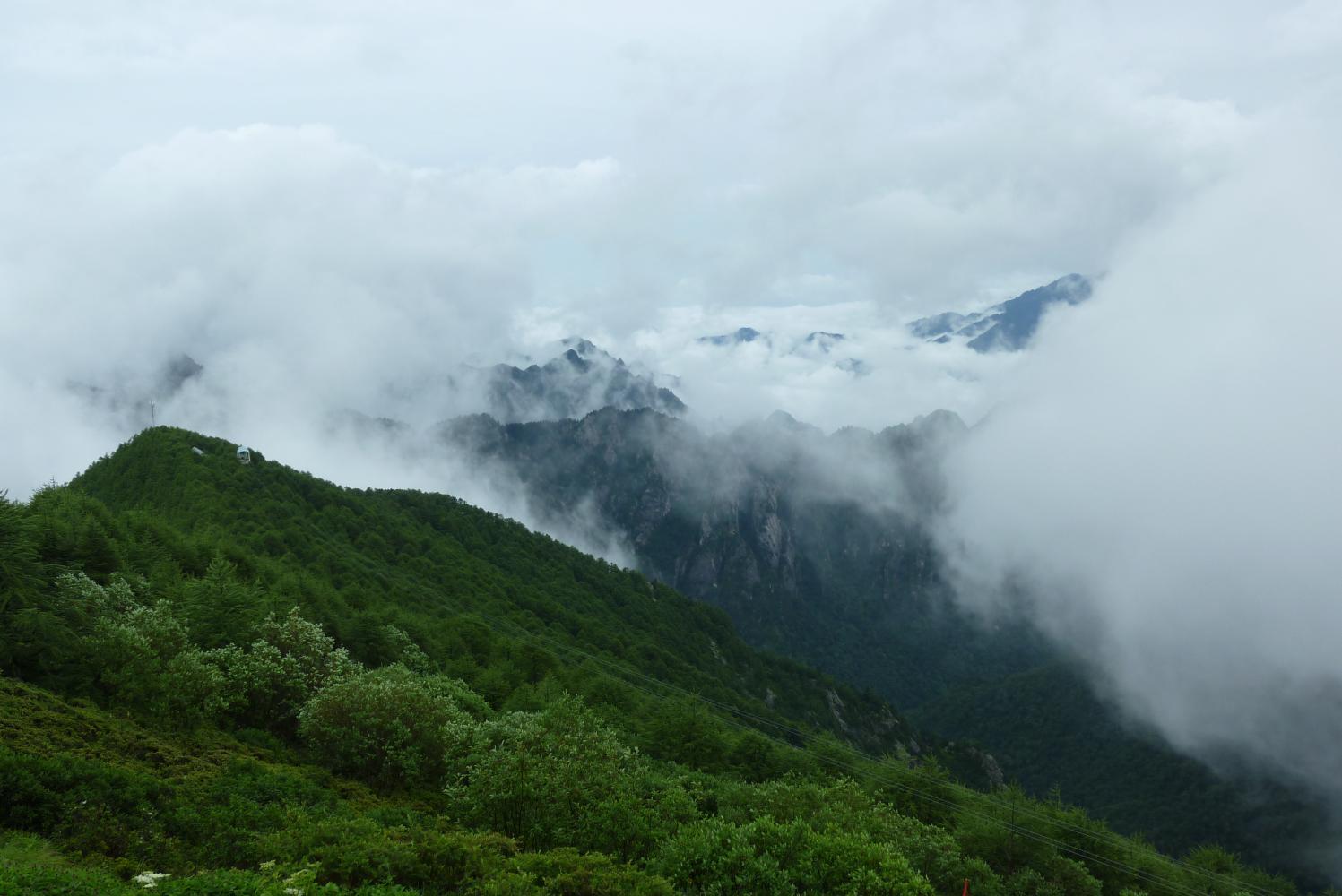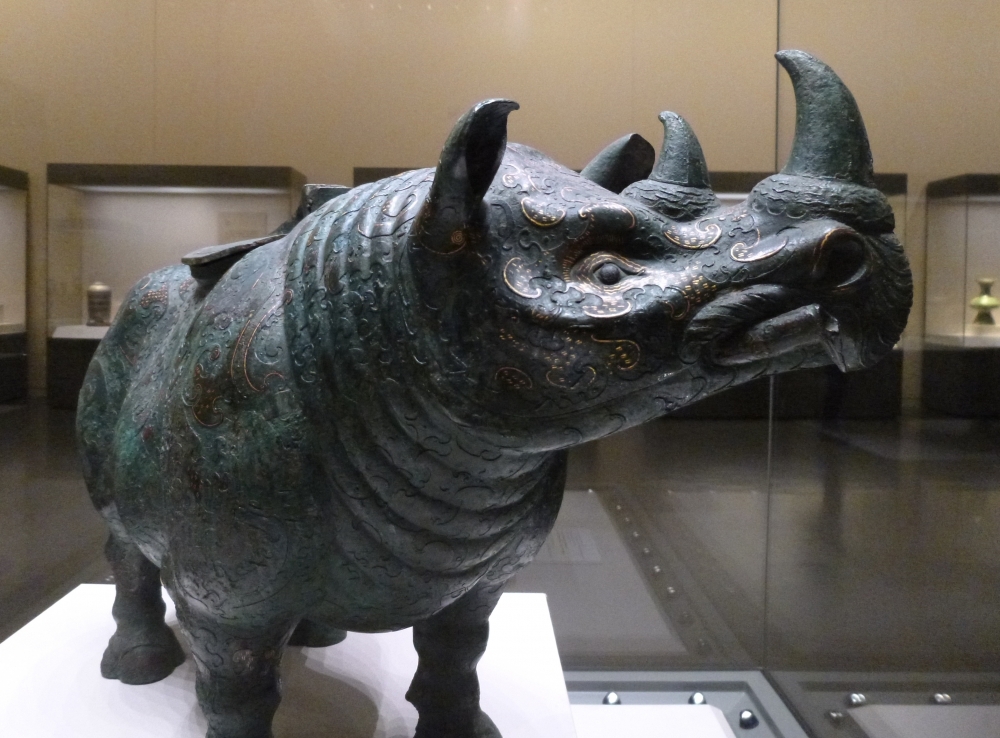"If you look at China now, it's one of the most environmentally transformed regions on Earth," says IBES fellow and Assistant Professor of History Brian Lander. "There are almost no wild animals in the population centers of China. There aren't even squirrels. There are a few birds, like pigeons and sparrows. But if you compare it to here, it just feels so dominated by humans."

Lander's research emerged from his realization that very few historians were studying how this transformation happened, and why the human impact was so dramatic in China. One answer, according to the archival records he has examined, lies in the 2,000-plus year history of China's imperial governments.
"I had no interest in political history when I began my research, but I gradually realized that almost all the documents in ancient China are being produced by the state," he says. "That led me to recognize that the state was, in fact, one of the main things that was transforming the environment."
Building an empire
As Lander explains, pre-industrial political systems were fueled by the resources of the land; thus, their primary goals was to replace "unproductive" natural ecosystems with farmland. And as they grew, their ability to transform the environment did too. By the time China's first empire, Qin, was formed in 221 BC, it had the power to launch massive infrastructure projects that were designed to create more farmland, to grow more grain, and, ultimately, to generate more tax revenue.
And Qin and the empires that followed were generally successful. Lander's research has shown that, compared to other ancient states, China's early empires were highly centralized and efficient.
"They had these whole systems in place to extract resources from their huge domains," he says. "So they could do things like build new roads, build irrigation systems, colonize new regions, and send in settlers to cut down forests and turn them into farmland."
They also had control over millions of imperial subjects, the dominant workforce for large-scale projects in the pre-fossil fuel era. Perhaps most importantly, the Qin Empire established the centralized state as the model for political organization in China, which it remains to this day.
As Lander explains, the sources that weave this story were written by government officials, and so they tell us very little about everyday people.
Although there is little documentation of it, there must have been some level of resistance, perhaps on the part of farmers who were tired of paying taxes to the state, or laborers who objected to the scale or purpose of government projects.
"It's easy to tell stories that feed into certain narratives, and I'm trying not to do that," says Lander. "We don't have common people's stories from early China; we have all these sources that come from the top. So it makes it very easy to tell a top-down story, and it makes it almost impossible to tell a bottom-up kind of story."
"I'm very clear that I'm not saying that the state is all-powerful," he says, "just that Chinese states endured for millennia and played a role in transforming the environment."
Ecological effects
While political power is one focus of Lander's research, he is also interested in how people gradually transformed natural ecosystems into agricultural ones.
"Even 2,000 years ago, there were 60 million people in North China, which means that there were already huge areas of the lowlands whose natural ecosystems had been entirely destroyed," he says.
So what do we know about the ecosystems that have been lost?
To answer this question, Lander has been working with Visiting Assistant Professor of Archaeology and the Ancient World Katherine Brunson, focusing on animal bones excavated from archaeological sites in the area.
"When you do that, you realize that there would have been a huge number of wild animals," he says, "and groups of species that you don't find together at any place that exists now."

The high mountains are the only place in North China where natural forests still exist. Photo: Brian LanderAlthough the lowlands of North China had already been converted to farmland 2,000 years ago, species like deer, leopards, bears and others survived in mountainous areas.
But a few hundred years ago, crops like maize and sweet potatoes arrived from the New World and allowed people to farm the lower-quality land in the highlands. As more humans moved to higher ground and cleared the forests, the wildlife that had survived in those areas slowly dwindled. Eventually, species like tigers and rhinoceros were entirely eliminated from China, and the only large animals that survived were those that lived in high mountains, like pandas.
As Lander explains, this is just the big picture. The challenge for environmental historians is to understand the details of this process.
"Each animal has its own history," he says. "Part of what I'm interested in doing is thinking about each one separately, rather than just making blanket statements about how people wiped out all the animals."
Putting it in perspective
Lander's goal is to understand environmental change, rather than to assign blame.
"It is easy to describe the human colonization of natural environments as destruction or degradation, and I don't disagree with this," he says. "But human systems are ecological systems too. I want to know, how did agricultural systems become the dominant ecosystems in these regions over the last 10,000 years?"
Part of his aim is to lengthen our understanding of human impacts on the environment beyond recent centuries.
A recent UN study made headlines for showing that a certain percentage of the Earth's species have been lost. But studies like these tend to use modern biology as a baseline, which means that their scope is limited to the last few hundred years.

Historians can use artifacts like this rhinoceros to better understand the ancient ranges of wild animals. Photo: Brian Lander"But if you look at China, you can see that huge areas had already lost their larger mammals 2,000 years ago," says Lander. "What that means is that these figures of species loss are actually too low. This is true also in places like the Nile Valley or Mesopotamia. The old centers of human civilization were all transformed, especially in their river valleys."
Through his research, Lander also wants to open new questions surrounding politics and the environment, and the overarching dynamics of human societies.
For example, many environmentalists consider capitalism unsustainable, but fail to explain how an alternative system could avoid the drive for economic growth that has characterized all political systems in human history.
"If political systems are fundamentally based on increasing economic production so they can have more resources, that's not actually sustainable," he says.
"If we want to think about what a sustainable human future would look like, we need to think about how political systems work."